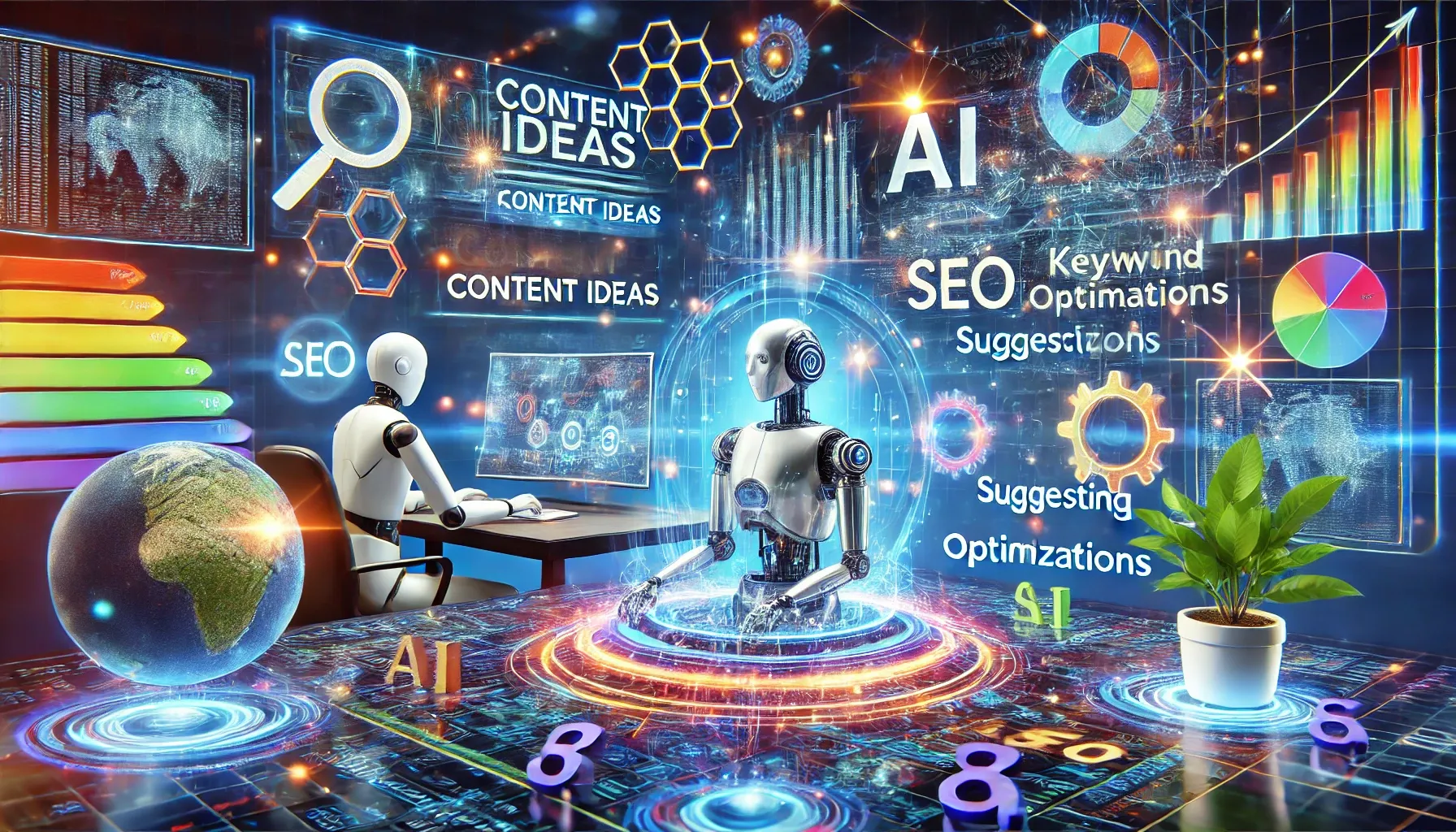
Artificial Intelligence (AI) has revolutionized numerous industries, and digital marketing is no exception. The integration of AI into content creation and SEO (Search Engine Optimization) has transformed the way marketers create, optimize, and rank content online. From speeding up the writing process to improving content quality and relevance, AI is redefining the digital landscape. Here’s an in-depth exploration of how AI is changing content creation and optimization for SEO.
AI tools such as ChatGPT, Jasper AI, and Writesonic have taken center stage in content creation. These tools can generate high-quality articles, social media posts, product descriptions, and more in a matter of minutes. Here's how they are reshaping the process:
Speed and Efficiency: AI significantly reduces the time required to produce content by automating repetitive tasks like drafting blog posts or creating social media captions.
Personalization: AI enables the creation of personalized content tailored to specific audiences by analyzing user behavior, preferences, and past interactions.
Scalability: With AI, businesses can produce a large volume of content consistently, making it easier to meet the growing demand for digital content.
AI not only helps in creating content but also ensures that it is optimized for search engines. It uses advanced algorithms and machine learning to analyze and implement SEO best practices.
Keyword Research: AI tools like Semrush, Ahrefs, and Moz provide insights into high-ranking keywords, long-tail phrases, and search intent. These tools analyze competitor data and predict trends to help marketers select the most effective keywords.
Content Structure: AI can suggest ideal headings, subheadings, and content structures that align with search engine algorithms. Tools like Frase and Surfer SEO guide writers in organizing content to increase readability and relevance.
Meta Optimization: AI tools generate optimized meta titles, descriptions, and alt tags, ensuring better visibility on search engine result pages (SERPs).
Internal Linking: AI analyzes website content to recommend strategic internal linking, enhancing site navigation and improving SEO scores.
Content quality plays a crucial role in SEO rankings, and AI is instrumental in refining the quality of digital content.
Grammar and Clarity: Tools like Grammarly and ProWritingAid leverage AI to improve grammar, spelling, and overall readability. This ensures that content meets professional standards.
Tone and Style: AI tools adjust the tone and style of content based on the target audience, whether formal, conversational, or technical.
Plagiarism Detection: AI-powered plagiarism checkers like Copyscape ensure that content is original, a critical factor for SEO performance.
Understanding user intent is a cornerstone of effective SEO. AI algorithms analyze search behavior to determine whether users are seeking information, navigating to a specific site, or ready to make a purchase.
Search Intent Analysis: By analyzing historical data and user behavior, AI tools help marketers align their content with the exact needs of their audience.
Personalized Recommendations: AI delivers personalized content recommendations to users, improving engagement and increasing the likelihood of conversions.
Visual content is becoming increasingly important for SEO, and AI has made it easier to create and optimize visuals.
Image Optimization: AI tools automatically compress images, add alt text, and enhance visual quality, ensuring faster loading times and improved rankings.
Video Content: AI-driven platforms like Pictory and Descript assist in creating engaging video content, optimizing it with SEO-friendly tags, and providing subtitles.
AI tools provide real-time data on content performance, allowing marketers to make immediate adjustments.
Rank Tracking: Tools like SERPstat and SEMrush monitor keyword rankings and suggest optimizations to maintain or improve visibility.
Analytics: AI-powered analytics platforms evaluate traffic, bounce rates, and user engagement to provide actionable insights for content improvement.
While AI offers numerous advantages, it also presents challenges, including over-reliance on automation and ethical concerns.
Balancing Automation with Creativity: While AI can generate content, human oversight is necessary to maintain originality and creativity.
Avoiding AI-Generated Spam: Search engines penalize duplicate or low-quality content, making it essential to use AI responsibly.
Ethical Considerations: Transparency about AI-generated content is crucial to maintain trust with audiences.
As AI continues to evolve, its role in content creation and SEO will expand. Future trends may include:
Voice Search Optimization: AI will play a vital role in optimizing content for voice-based queries.
Hyper-Personalization: AI will deliver even more personalized content based on real-time data.
Content Generation with Emotion: Advanced AI models may incorporate emotional intelligence to create content that resonates deeply with users.
AI is not just a tool for content creation and SEO—it is a transformative force that is redefining the digital marketing landscape. By enabling faster content generation, enhancing optimization, and providing deep insights into user behavior, AI empowers businesses to achieve better rankings, improved engagement, and higher conversions. However, balancing automation with human creativity and maintaining ethical practices are crucial to leveraging AI’s full potential. As we move forward, embracing AI-driven strategies will be key to staying competitive in the ever-evolving world of SEO.